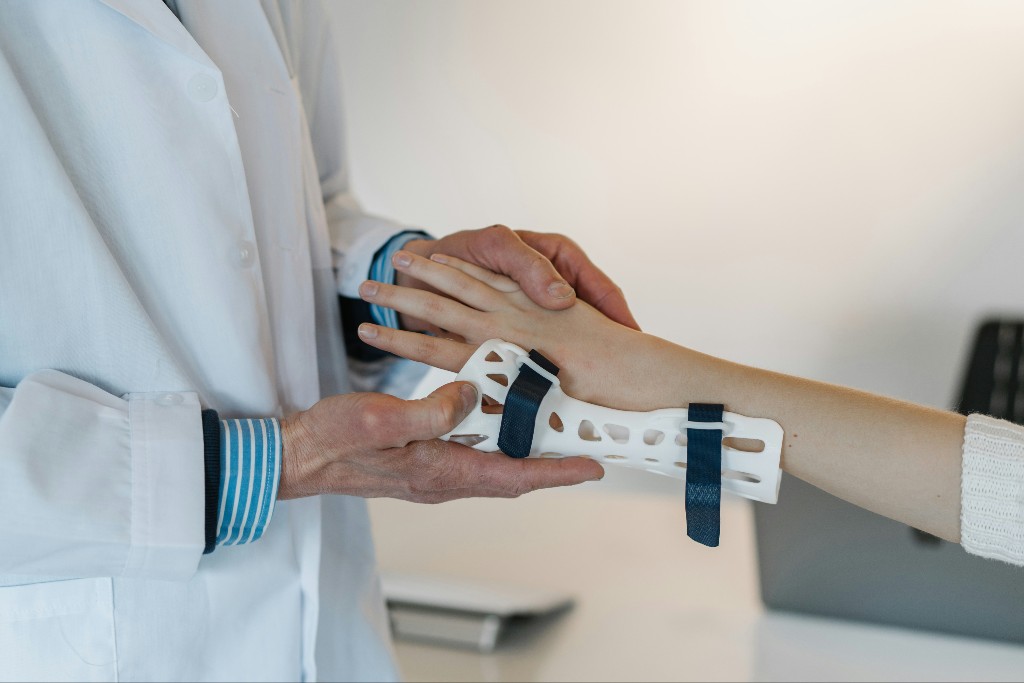The aftermath of a car accident can be stressful or even a blur, and many people don’t notice their injuries until days or hours after the event. As the adrenaline begins to dissipate and your body tries to resume normal function, you may begin to notice soreness and trouble with various types of mobility. Even if you were evaluated on the scene, whiplash does not show up on scans, and you may not know you’ve been affected by it until you visit a whiplash doctor. If you begin experiencing delayed symptoms after a car accident, below are some common signs of whiplash to look out for.
1. Neck Pain
Depending on the severity of the injury, neck pain can range from mild to severe. In some cases, it will be located in a specific area, but it can also be a generalized pain or pain that radiates down the shoulder into the arm or hand. Whiplash is caused when the ligaments and muscles in the neck are sprained or even torn, causing this pain. Similar pain can also be caused by injuries to discs, joints, nerves, or bones, but if you were involved in a collision, whiplash is the most common car accident injury.
2. Shoulder or Back Pain
When the soft tissues in the neck, like muscles or ligaments, are injured, the pain can be transferred to other soft tissues in the area. When this occurs in whiplash, the shoulder and upper back may also be subject to pain as a result of the injury.
3. Reduced Range of Motion
Pain typically makes you not want to move that part of your body, but a reduction in range of motion can be more serious. You may have an actual inability to move in ways you usually can. When a muscle is tight or damaged, it can prevent certain actions. A torn ligament, like in whiplash, can do the same thing. It is recommended that you keep your neck and arms mobile with whiplash to regain the movement and keep it active. A lack of stability or difficulty controlling your neck may also be a sign of whiplash.
4. Headaches
When the neck is damaged, it can be related to the cervical spine and cause headaches. Nerve and joint injuries can cause this, as well as the stress of whiplash. Even if your head was not injured, you may feel tension headaches and pain as a result of whiplash injuries.
5. Tingling, Weakness, or Numbness
In some cases, whiplash can cause compression or inflammation of a spinal nerve root in the neck, which can lead to symptoms like tingling, radiating “pins and needles” feelings, or numbness from the shoulder down into the arm and hands. This will often occur on only one side of the body. This can be an indication of more severe damage.
Am I At High Risk of Whiplash?
Technically, anyone riding in a car is vulnerable to whiplash as there is no way to fully prevent it from occurring. However, there are some risk factors that can make the risk associated with whiplash greater. For example, being hit from behind or “rear-ended” by another car is the type of accident that is most likely to cause whiplash. Being in a stopped vehicle during impact can also be a common risk factor. Often, the person who is not at fault in the accident is the one more likely to undergo whiplash.
Women and younger adults are also more likely to suffer from whiplash. A history of neck pain can also cause more severe symptoms, as well as people who work “desk” jobs and look down in a sedentary position all day, as they may have tight muscles.
Treating Whiplash
If you think you may be suffering from whiplash, it is important to visit a doctor for a physical exam. At this appointment, you may undergo diagnostic scans like an MRI or CT scan, though in most cases whiplash does not appear in these scans. Reviewing your symptoms will be the main way to diagnose the condition. From there, you will be prescribed anti-inflammatories or muscle relaxers, and told to apply heat to the area, as well as a chain of exercises to help you regain motion.
At AICA Orthopedics, our neck doctors and team specialize in treating injuries that result from car accidents. We can provide an accurate assessment of your injury and its severity, and create a treatment plan that is customized to your situation. If you are experiencing any of the symptoms mentioned above, contact us today to begin the process of recovery.





